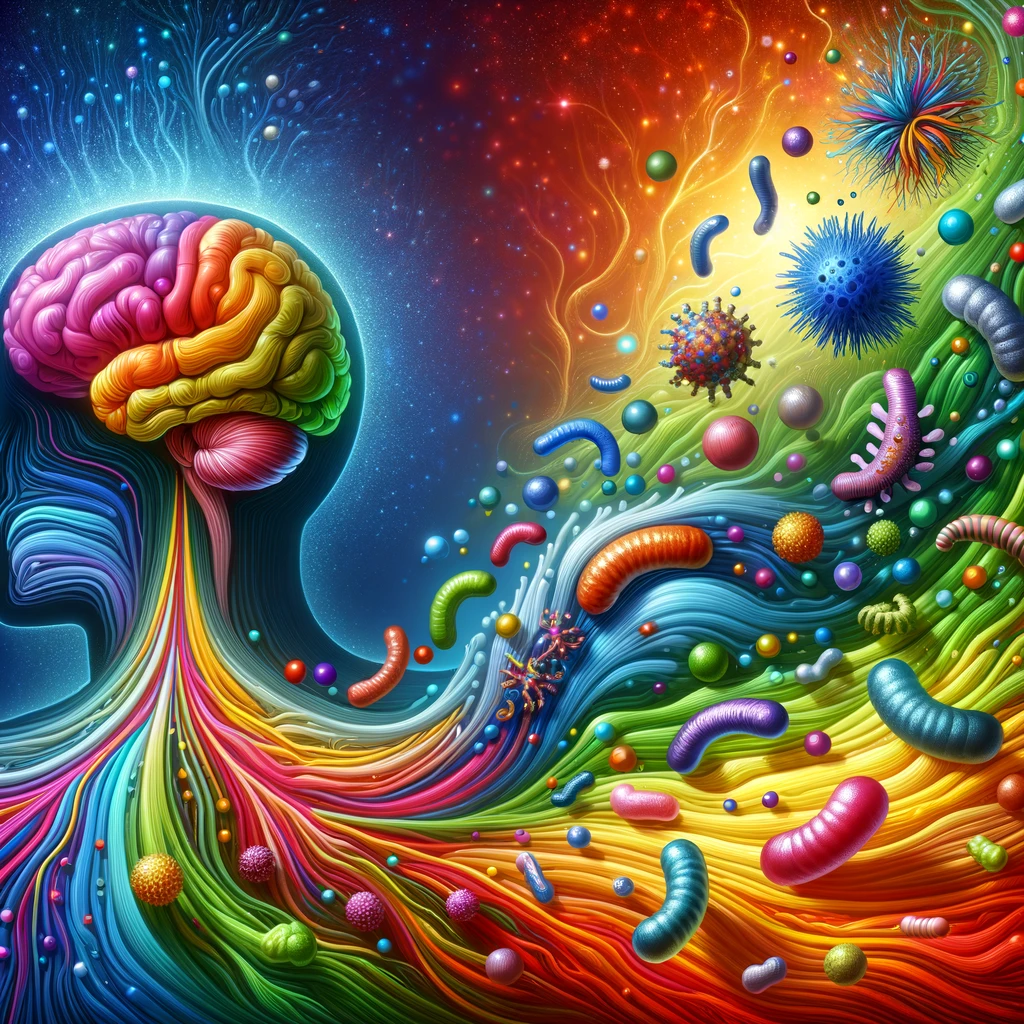Have you ever considered that the bacteria living in your gut could affect your mood and mental health? A groundbreaking study involving over 2,500 individuals has revealed a fascinating link between our gut microbiome—the vast community of microorganisms residing in our intestines—and depressive symptoms.
Identifying the Microbial Culprits Behind Depression
This extensive research identified specific bacteria associated with depression, marking a significant step forward in understanding the complex relationship between our gut health and mental well-being. Among the notable findings were 12 bacterial genera and one microbial family linked to depressive symptoms. Certain bacteria like Sellimonas, Eggerthella, Lachnoclostridium, and Hungatella were found in higher amounts in individuals experiencing more severe depressive symptoms. Conversely, other bacteria were less abundant in those with depression, suggesting a delicate microbial balance affecting our mood.
The Impact of Diet on Depression Through the Gut Microbiome
The study builds on previous research showing connections between various gut bacteria and major depression. For instance, Eggerthella has been consistently linked to increased cases of depression and anxiety. It’s fascinating to see how these microorganisms, including Coprococcus and Subdoligranulum, play roles in producing butyrate—a compound with potential benefits against depression. These findings emphasize the importance of dietary influences, such as omega-3 fatty acids, on our mental health through their impact on gut bacteria.
Connecting the Dots: Obesity, Atherosclerosis, and Mental Health
This study reveals intriguing links between depression and specific gut bacteria, notably Sellimonas, Hungatella, and Ruminococcusgauvreauii. Sellimonas stands out for its association with atherosclerosis and dysbiosis, hinting at a possible role in the interplay between physical conditions and mental health. Additionally, the study observes a correlation between depressive symptoms and the depletion of Eubacterium ventriosum, a bacterium also linked to obesity and traumatic brain injury, suggesting complex interactions beyond mere body weight. Moreover, the presence of Ruminococcusgauvreauii in atherosclerotic conditions, which are causally connected to depression, underscores the potential of these bacteria as mediators in the intricate relationship between cardiovascular health, obesity, and depression, highlighting a multifaceted gut-brain connection that could inform future therapeutic strategies.
How Gut Bacteria Talk to the Brain: Neurotransmitters and Mood
Beyond identifying bacteria linked to depression, the study explored how these microbes might influence brain chemistry. Many of the bacteria are involved in producing substances like glutamate, butyrate, serotonin, and gamma-aminobutyric acid (GABA), all crucial for brain function and mood regulation. This underscores the gut-brain axis’s role, where gut bacteria can significantly influence brain activity and emotional health.
Towards New Horizons: Gut Health as a Pathway to Mental Wellness
The implications of this research are vast, suggesting that manipulating the gut microbiome could offer new avenues for treating depression. It points towards the potential of dietary interventions, probiotics, and other strategies to modulate gut bacteria as part of comprehensive approaches to mental health care.
Moreover, the study highlights the importance of considering gut health in the broader context of mental health treatment and prevention strategies. By understanding the specific bacteria involved in depression, researchers can target these microbial communities to develop more effective treatments.
Embracing the Gut-Brain Connection for Comprehensive Care
This study sheds light on the complex relationship between the gut microbiome and depression, offering hope for new, innovative treatment strategies. It underscores the significance of our gut bacteria in not just our physical health, but our mental well-being too, opening up a fascinating avenue of research that could transform how we approach mental health care. As we continue to unravel the mysteries of the gut-brain connection, we move closer to a future where depression and other mental health conditions can be managed more effectively through holistic approaches that include nurturing our microbiome.
References
- Radjabzadeh, D., Bosch, J. A., Uitterlinden, A. G., Zwinderman, A. H., Ikram, M. A., van Meurs, J. B., … & Amin, N. (2022). Gut microbiome-wide association study of depressive symptoms. Nature Communications, 13(1), 7128.
